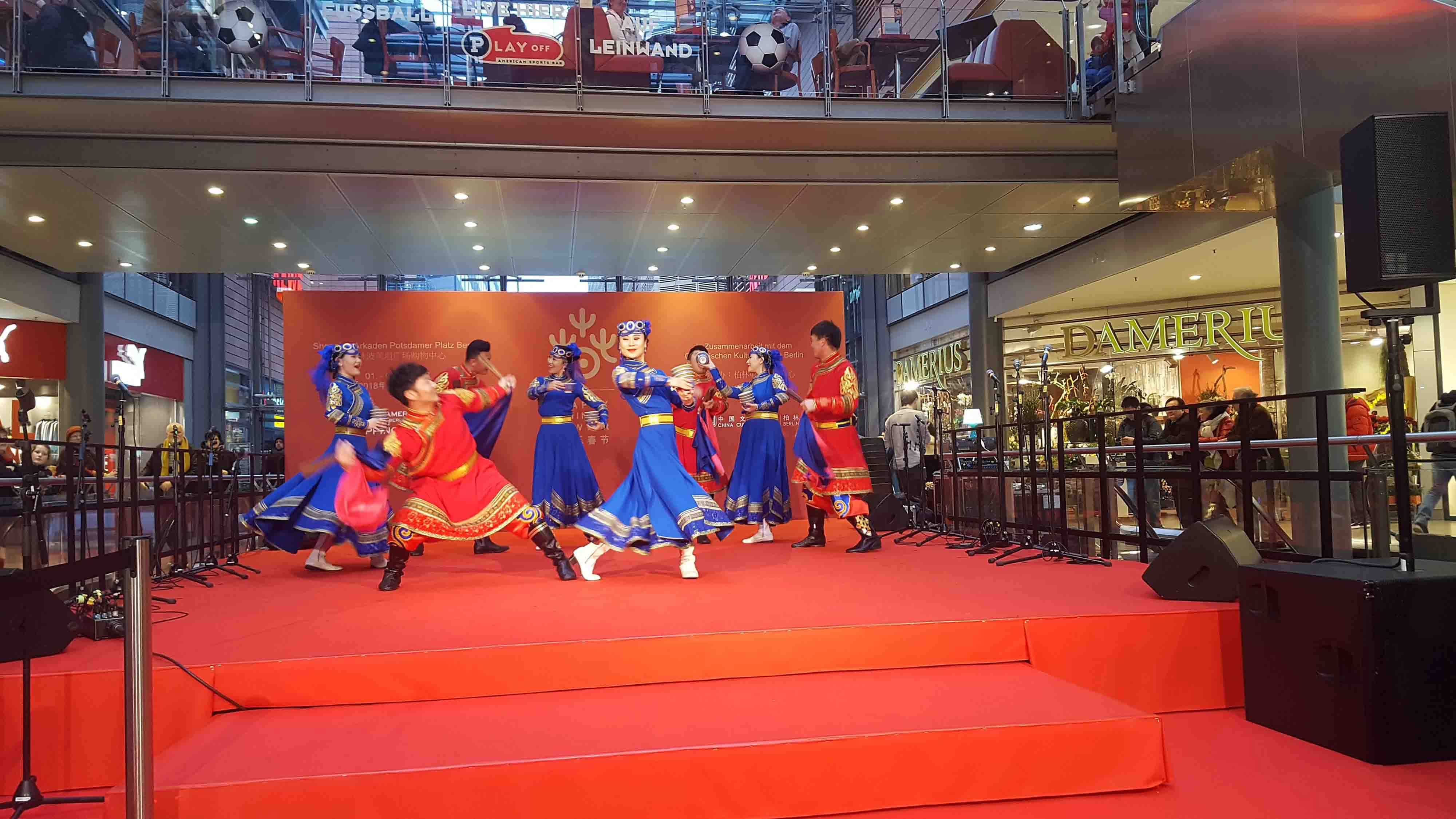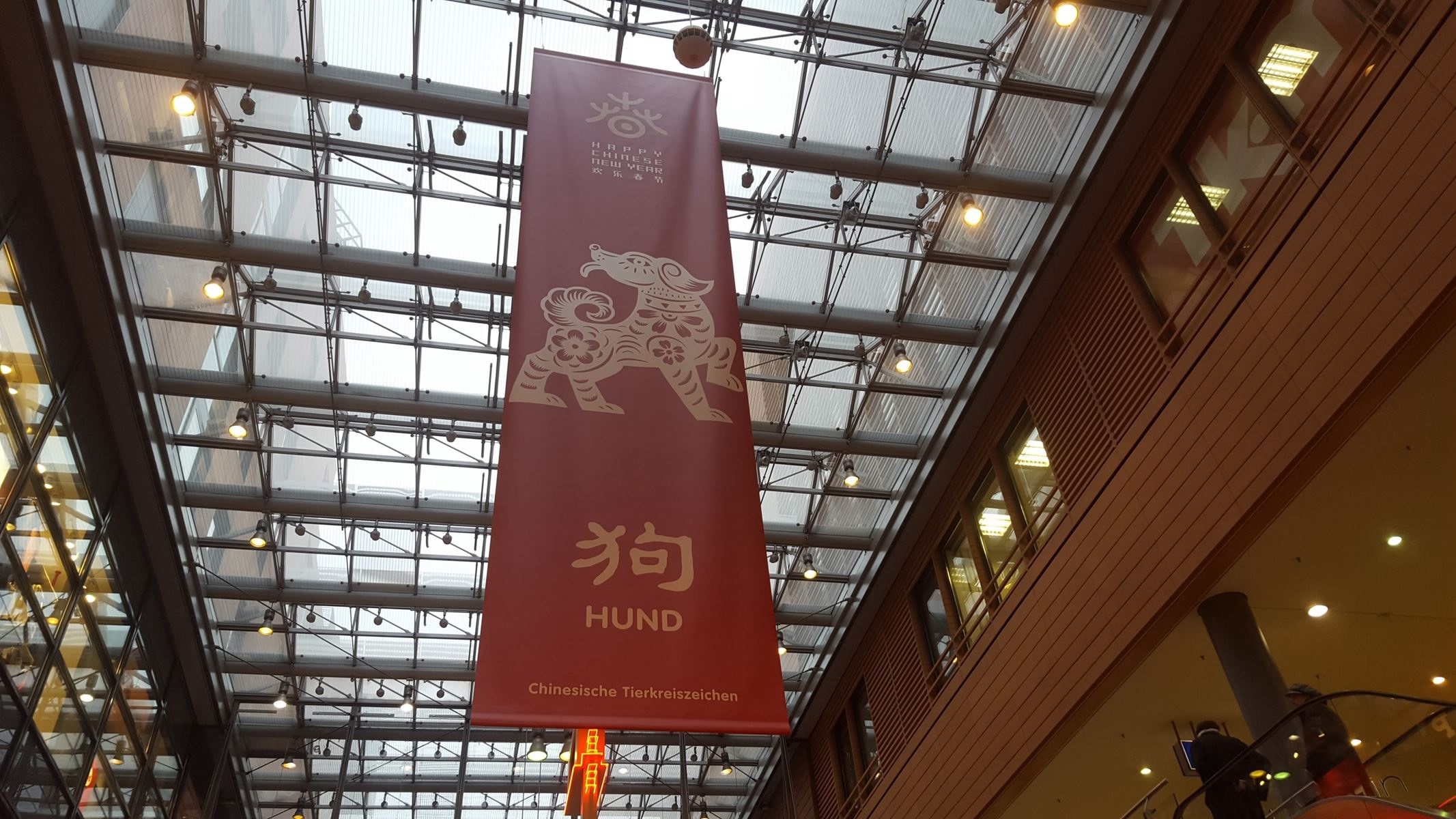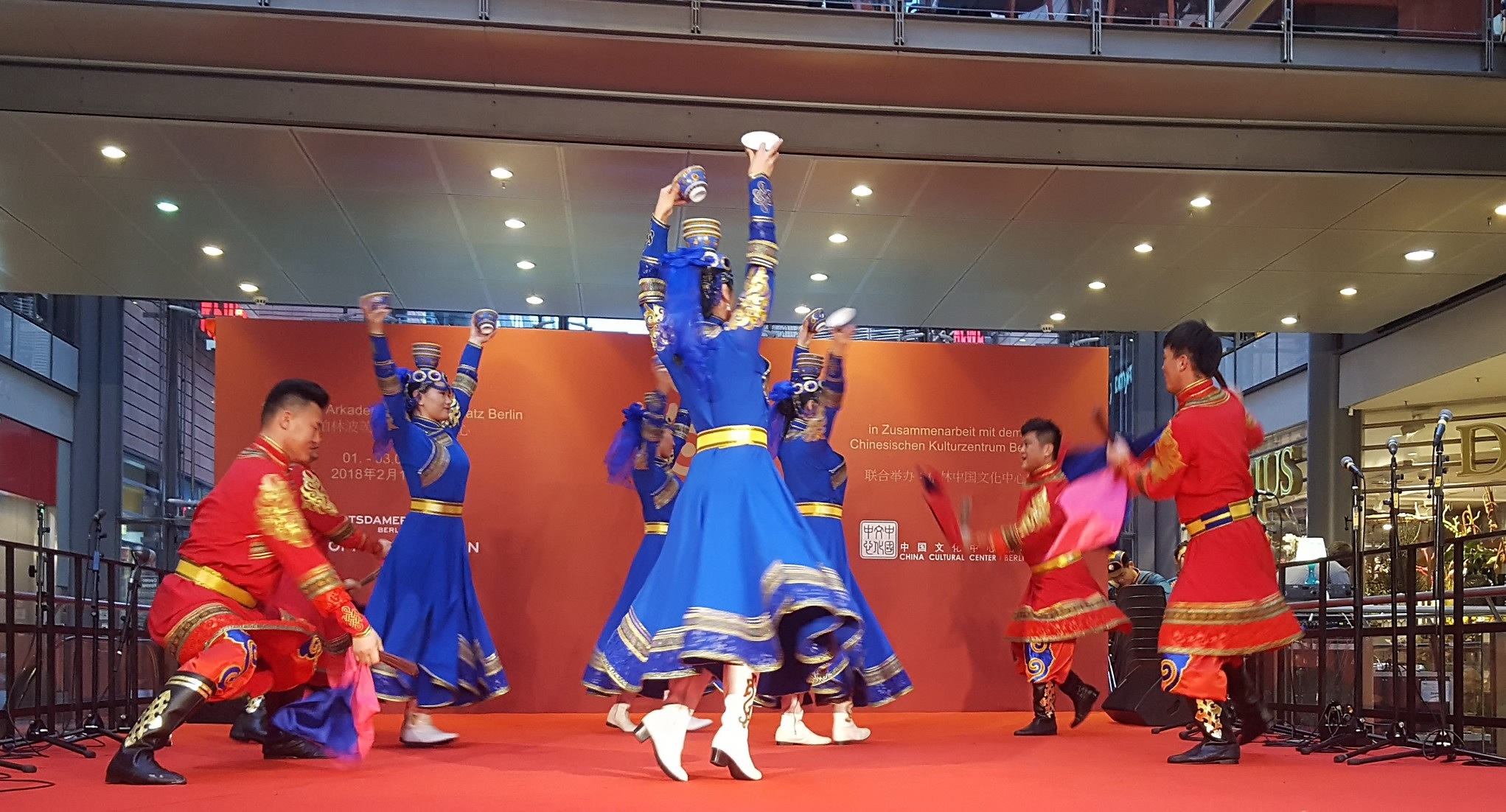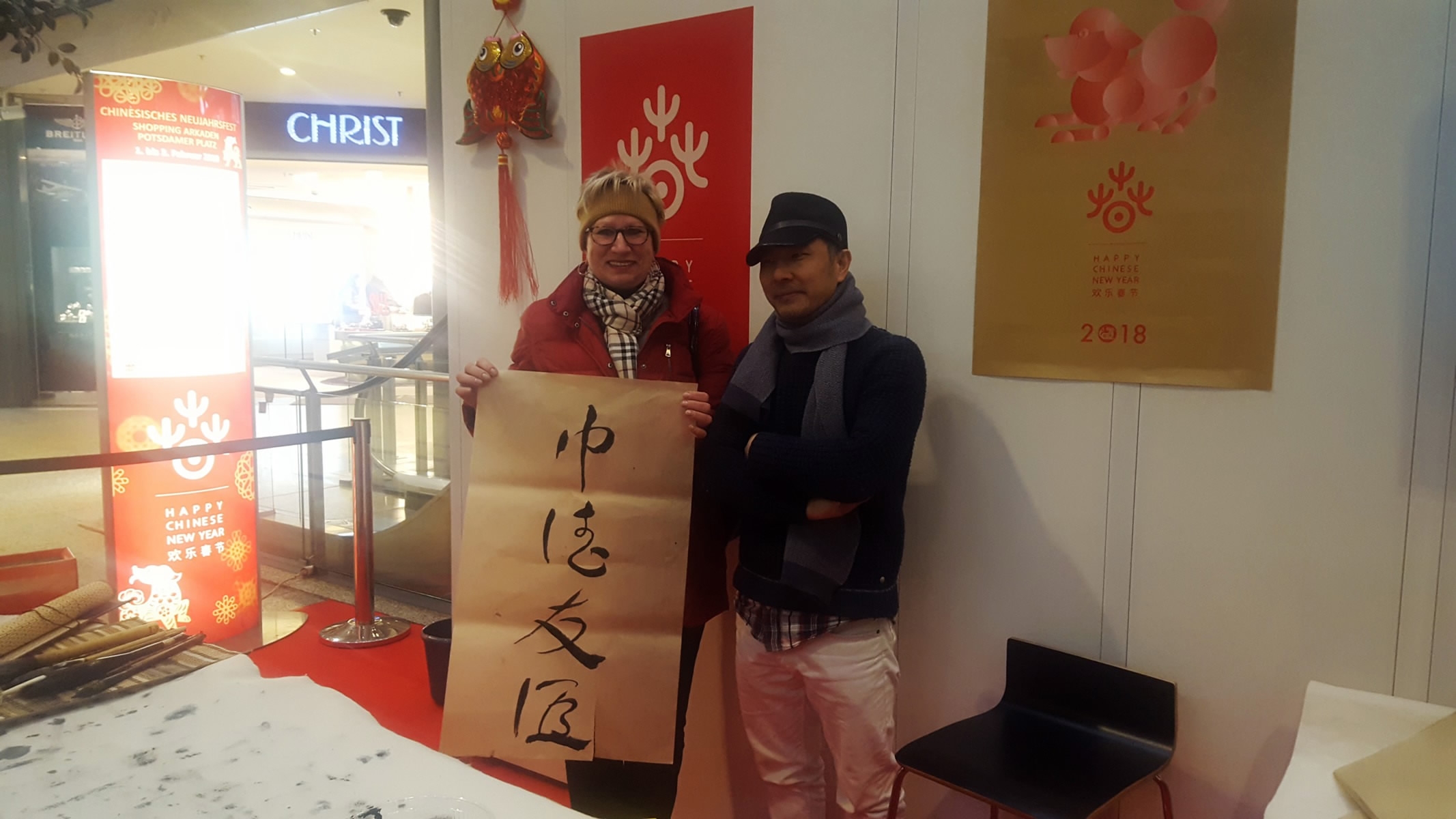
Culture
14:47, 05-Feb-2018
Berlin stages Chinese New Year celebrations
By Ira Spitzer

Chinese New Year celebrations kicked off in the German capital of Berlin over the weekend, in advance of the holiday on February 16.
Locals, tourists and a sizable contingent of Chinese expatriates gathered for three days of festivities at Berlin’s Potsdamer Platz.
In its fifth year visitors have the chance learn about the Chinese zodiac and the upcoming year of the dog. The event also featured workshops on the Chinese language and Chinese calligraphy.

Berlin celebrates Chinese New Year - Year of the Dog. /Ira Spitzer
Berlin celebrates Chinese New Year - Year of the Dog. /Ira Spitzer
This year, there was a special focus on the Inner Mongolia Autonomous Region.
"Every year, the Chinese Cultural Center has a Chinese region as its cooperation partner," said Chen Jianyang, director of the Chinese Cultural Center of Berlin. "In years past we've had the provinces and municipalities of Shanghai, Jiangsu, Guangdong, and Beijing as partners. Last year, the Inner Mongolia Autonomous Region was our cooperation partner and afterward, we continued that cooperation."

Singers and dancers perform on stage. /Ira Spitzer
Singers and dancers perform on stage. /Ira Spitzer
Singers and dancers from Inner Mongolia performed throughout the weekend and the event included arts and crafts from the region.
Moderator Karsten Speck explained to curious onlookers a little more about a place they might not have known very much about.
"It's a very broad landscape which is not so densely settled," Speck said. "It's approximately 1.2 million square meters, three times as big as Germany, but only a third of the population. That means there are wide open spaces. There really is a nomadic and herding lifestyle there."
Five artisans from Inner Mongolia presented examples of Mongolian craftsmanship, including paper cutting, Ordos costumes, silver bowls, horse-headed violins and snuff bottles.

Berlin celebrates Chinese New Year. /Ira Spitzer
Berlin celebrates Chinese New Year. /Ira Spitzer
Organizers said that the annual festival is a chance for people from different places to get to know each other, and learn about Chinese culture.
"We think it makes a lot of sense to have this kind of event in the heart of Berlin," said Chen Jianying, "so people from different countries and from different cultural backgrounds can meet here and learn from each other."
The event also featured traditional dragon and lion dances, as well as a fireworks display.
China and Germany have become increasingly connected in recent years. Last year, China became Germany's largest trading partner and more than a million Chinese tourists visit the country annually.

SITEMAP
Copyright © 2018 CGTN. Beijing ICP prepared NO.16065310-3
Copyright © 2018 CGTN. Beijing ICP prepared NO.16065310-3